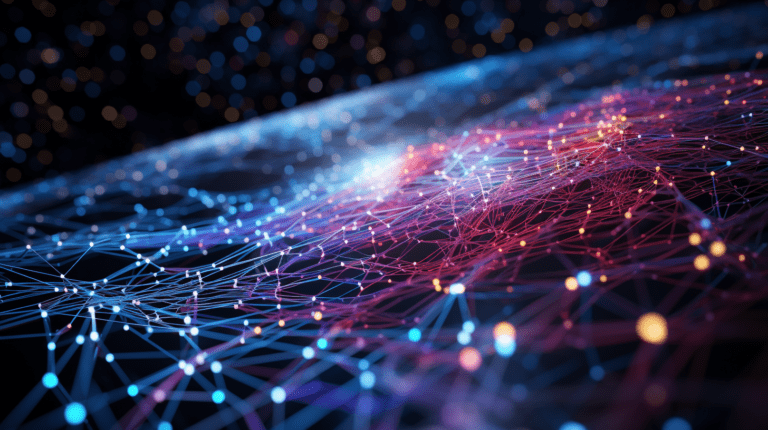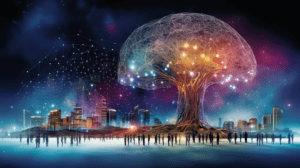Navigating AI's Promise and Challenges
Artificial intelligence (AI) is catalyzing breakthrough discoveries across scientific disciplines. As massive datasets and computational power grow exponentially, scientists are harnessing AI and machine learning to unlock insights and accelerate innovation. This emerging synergy between AI and science promises to reshape the landscape of research and discovery.
AI is already demonstrating profound impacts in fields like biomedicine, materials science, high energy physics, and astronomy. For instance, AI systems are analyzing vast genomic datasets to reveal new disease mechanisms, predict protein structures, and enable personalized medicine tailored to patients’ genetic profiles. The AlphaFold system developed by DeepMind decoded 3D protein shapes with unparalleled accuracy, providing clues into disease development.
At particle colliders, AI algorithms are sifting through massive volumes of collision data to identify signals of new particles and physics phenomena. Machine learning models can also simulate complex quantum chromodynamics calculations that are intractable for conventional supercomputers. This provides new windows into exotic realms like quark matter and the quantum vacuum.
In astronomy, deep learning tools are uncovering galaxies and patterns in cosmological datasets that human researchers miss. AI can rapidly classify astronomical objects, enabling new discoveries as telescopes generate petabytes of images. It is also helping LIGO detect elusive gravitational wave signals from cosmic cataclysms like black hole mergers.
Core Drivers Underpinning the AI-Science Synergy
Several key factors are fueling the growing role of AI in driving scientific progress:
- Data Deluge: Modern scientific instruments like gene sequencers, particle detectors, and satellite observatories are yielding exponentially massive datasets. Manually analyzing these is infeasible. AI provides the tools to extract insights.
- Increasing Model Complexity: Many natural phenomena involve multidimensional interactions between countless variables. This complexity exceeds human cognition. AI methods can model these intricate systems.
- Innovation Speed: Trial-and-error discovery remains slow and laborious. AI vastly accelerates the search for solutions by rapidly testing hypotheses and options.
- Personalization: One-size-fits-all approaches falter in complex domains like biomedicine. AI enables solutions tailored to individuals, like genomic therapy.
- Enhanced Interpretability: While AI models can behave like black boxes, new techniques are making their reasoning more understandable to researchers.
Revolutionizing the Scientific Process
Beyond analyzing data, AI is transforming how science is conducted at a fundamental level:
- Hypothesis Generation: AI can formulate new hypotheses by detecting novel patterns in data. This expands the scope of scientific inquiry.
- Experimental Design: Algorithms can optimize the variables and conditions for experiments, reducing trial costs.
- Result Interpretation: AI can contextualize experimental outcomes within existing scientific frameworks to derive meaning.
- Knowledge Synthesis: Machine learning can assimilate insights from disparate studies into unified theoretical frameworks faster than humans.
- Simulation and Modeling: AI simulations provide cost-effective virtual laboratories to test hypotheses and extrapolate real-world conditions.
- Process Automation: Robotic AI systems can autonomously conduct certain well-defined experiments around the clock.
- Collaboration Platforms: Shared virtual environments allow researchers to collaborate on experiments in real-time unconstrained by geography.
Navigating the Challenges
- Potential biases encoded in algorithms and training data must not propagate errors. Scientists must scrutinize AI reasoning.
- As research relies more on big data, maintaining privacy and security is paramount. Ethical collection and use of data is vital.
- While automation accelerates progress, serendipitous discovery and human insight remain invaluable. The scientific process should not be fully automated.
- Regulations and standards for use of AI in fields like biomedicine and geoengineering must balance innovation and risk.
- Uneven access to resources could widen gaps between developed and developing countries. Global collaboration and equity are crucial.
Conclusion
By proactively navigating these challenges, AI can augment human capabilities and enable scientific breakthroughs on an unprecedented scale, ushering in a new era of accelerated discovery. But ultimately, AI is just a tool. Scientific progress depends on asking the right questions – something only human intuition and creativity can do.

